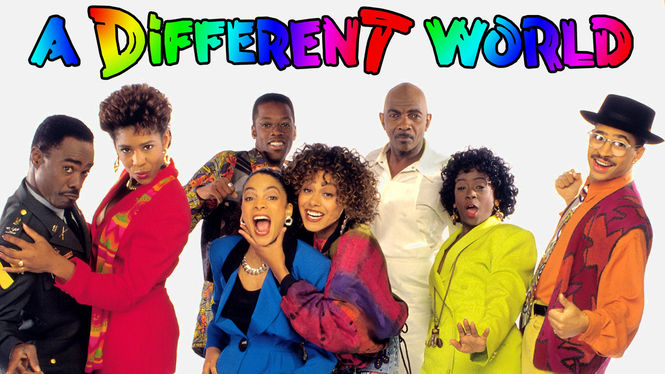Good Morning POU!
Black sitcoms play an important role with the depiction of Black families and identity, as they were one of the only forms of positive representation of a Black family. In the post-soul era, these sitcoms were able to create multidimensional characters that curtailed away from the racial stereotypical representation of Black people on television.
In the 1980s sitcoms such as The Cosby Show, A Different World, and Frank’s Place, challenged stereotypical portrayals of blacks but were nevertheless seen as “black” (segregated) despite appearances by white actors.
The Cosby Show is an American sitcom television series co-created by and starring Bill Cosby, which aired for eight seasons on NBC from September 20, 1984, until April 30, 1992. The show focuses on an upper middle-class African-American family living in Brooklyn, New York.
The Cosby Show spent five consecutive seasons as the number-one rated show on television. The Cosby Show and All in the Family are the only sitcoms in the history of the Nielsen ratings to be the number-one show for five seasons. It spent all eight of its seasons in the top 20.
According to TV Guide, the show “was TV’s biggest hit in the 1980s, and almost single-handedly revived the sitcome genre and NBC’s ratings fortunes.”
The show focuses on the Huxtable family, an upper middle-class African-American family, living in a brownstone in Brooklyn Heights, New York, at 10 Stigwood Avenue. The patriarch is Cliff Huxtable, an obstetrician and son of a prominent jazz trombonist. The matriarch is his wife, attorney Clair Huxtable.
They have four daughters and one son: Sondra, Denise, Theo, Vanessa, and Rudy. Despite its comedic tone, the show sometimes involves serious subjects, like Theo’s experiences dealing with dyslexia, inspired by Cosby’s dyslexic son, Ennis. The show also deals with teen pregnancy when Denise’s friend, Veronica (Lela Rochon), becomes pregnant.

A Different World (a spin-off of The Cosby Show) aired for six seasons on NBC from September 24, 1987 to July 9, 1993. The series originally centered on Denise Huxtable (Lisa Bonet) and the life of students at Hillman College, a fictional historically black college in Virginia. It was inspired by student life at historically black colleges and universities. After Bonet’s departure in the first season, the remainder of the series primarily focused more on Southern belle Whitley Gilbert (Jasmine Guy) and math whiz Dwayne Wayne (Kadeem Hardison).
While it was a spin-off from The Cosby Show, A Different World typically addressed issues that were avoided by The Cosby Show writers (race and class relations, or the Equal Rights Amendment). One episode that aired in 1990 was one of the first American network television episodes to address the HIV/AIDS epidemic.
The original premise was to have a white student there and have Lena Horne as an acting teacher, but in production, the premise changed from being a story about a white girl in a black college to a black girl (Denise Huxtable) in a black college with a white friend.[5][6] It was ultimately decided that Denise, who was of college age, would be spun off and have a white roommate in order to show the dynamic of a white girl in predominantly black surroundings.[7] Meg Ryan was originally cast for this role, but she decided to pursue a film career, so Marisa Tomei was cast. The first season of Hillman’s student body consisted of both black and white students, but this was changed at the beginning of the second season and a very predominantly black student body maintained until the series ended.
The Step Show
After the first season, it came to Cosby’s and the producers’ attention that the series was not accurately portraying a historically black college and life on campus, so Debbie Allen, an alumna of Howard University, was hired as the chief creative force to revamp the show.
Whitley urges Gina to get out of her abusive relationship
The Hollywood Reporter is quoted as stating that when Debbie Allen became the producer (and usually director) of A Different World after the first season, she transformed it “from a bland Cosby spin-off into a lively, socially responsible, ensemble situation comedy.”
The Museum of Broadcast Communications states that Debbie Allen:
a graduate of historically black Howard University – drew from her college experiences in an effort to accurately reflect in the show the social and political life on black campuses. Moreover, Allen instituted a yearly spring trip to Atlanta where series writers visited three of the nation’s leading black colleges, Clark Atlanta, Morehouse and Spelman. During these visits, ideas for several of the episodes emerged from meetings with students and faculty
Because of Debbie Allen’s influence as the producer (and usually director) of A Different World after the first season, African-American youth who watched the show often cite it as a defining reason why many of them decided to attend a historically Black college or university. (cont’d)


